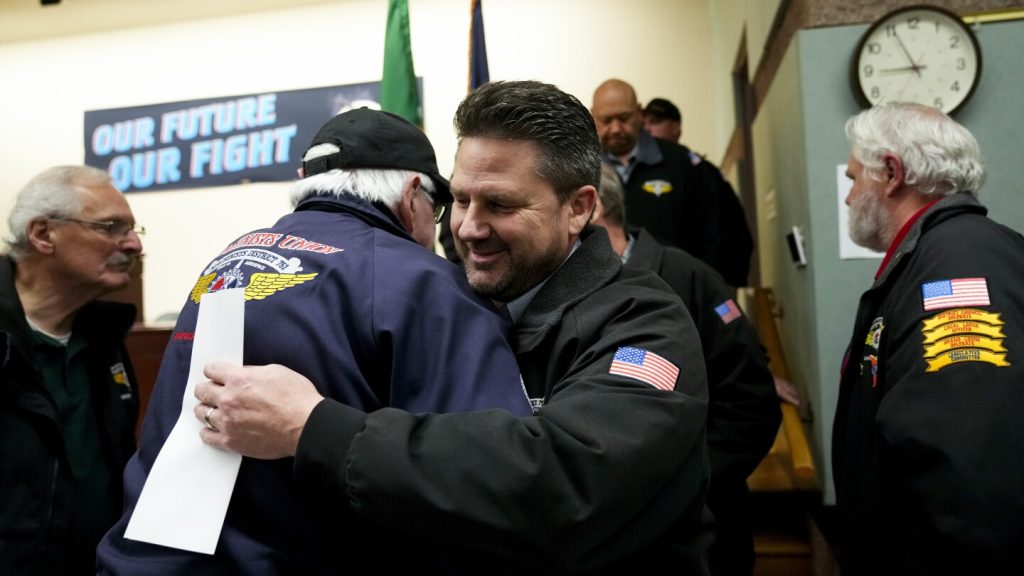After more than seven weeks, factory workers at Boeing voted to accept a contract offer and end their strike, allowing the aerospace giant to resume production of its bestselling airliner. The deal includes a 38% wage increase over four years, ratification and productivity bonuses, but did not meet the strikers’ demand to restore a frozen pension plan. Boeing was estimated to have been losing about $50 million a day during the strike, which did not affect a nonunion plant in South Carolina where the company makes 787s. The contract’s ratification on the eve of Election Day cleared the way for production to restart in the Pacific Northwest.
Boeing CEO Kelly Ortberg expressed pleasure at reaching an agreement and emphasized the need for teamwork to move forward. The 33,000 workers represented by the union can return to work as soon as Wednesday or as late as Nov. 12. The average annual pay for Boeing machinists is currently $75,608 and will rise to $119,309 under the new contract. Union leaders endorsed the latest proposal, stating they had achieved all they could through negotiations and the strike. President Joe Biden congratulated the machinists and Boeing, emphasizing the importance of the contract for the aerospace sector and workers’ ability to retire with dignity.
While reactions to the contract acceptance were mixed among union members, with some feeling it was not a complete victory, others celebrated the revised offer. The new contract also includes a $12,000 ratification bonus and retains a performance bonus the company had wanted to eliminate. The strike began in September with a rejection of the company’s offer to raise pay by 25% over four years, leading to further negotiations and rejections before the final agreement was reached. The strike marked the first by Boeing machinists since 2008 and was part of a volatile year for the aerospace giant.
Boeing faced financial peril and uncertainty as the strike dragged on, leading to plans for layoffs and stock sales to prevent credit rating downgrades. The company had also been under federal investigations related to safety concerns on its 737 Max planes after two crashes resulted in the deaths of 346 people. The CEO at the time announced his resignation in March, and Boeing agreed to plead guilty to conspiracy to commit fraud for deceiving regulators who approved the 737 Max. Washington Governor Jay Inslee praised the workers for taking a stand for respect and compensation, stating that the vote puts Boeing’s future on more solid footing. The aerospace industry and Boeing’s operations in the Pacific Northwest are expected to benefit from the resolution of the strike.


